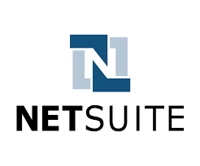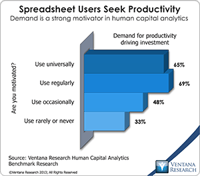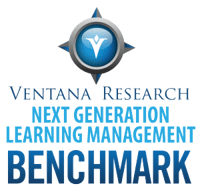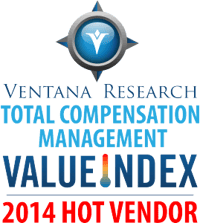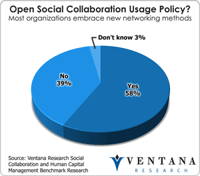At Ventana Research we’re familiar with the need for digital transformation as we have been researching and providing education on this topic for almost two decades. And recent global challenges make even clearer the sea change at hand: digital innovation is essential for not only success, but survival. Business continuity during a pandemic, natural disaster, cyber event or geopolitical situation requires business and risk mitigation processes, but unfortunately very few organizations had been...
Read More
Topics:
Big Data,
Customer Experience,
HCM,
Marketing,
Office of Finance,
Operations,
Sales Operations,
Business Continuity,
Analytics,
Digital Technology
It’s widely agreed that customer experience is now the most important dynamic for business. Any organization that wants to retain loyal and even vocal customers should do everything possible to ensure and maintain customer satisfaction. Software companies, especially those that promise to provide CRM and effective interactions across any channel at any time, should be good examples of embracing the methods they prescribe for using their products. But do they?
Read More
Topics:
Social Media,
Customer Experience,
HCM,
Human Capital,
Human Capital Management,
Marketing,
NA14,
NetSuite,
Operational Performance Management (OPM),
Zach Nelson,
Cloud Computing,
Governance, Risk & Compliance (GRC),
Customer Performance Management (CPM),
Financial Performance Management (FPM),
HR,
HRMS,
Sales Performance Management (SPM),
TribeHR,
Workforce Performance Management (WPM)
Enterprise resource planning (ERP) is a software category that includes an array of business applications that includes human resources and finance. Workday is a vendor at the center of a new generation of ERP. My colleague Robert Kugel recently covered that company’s advances in finance using cloud computing to operate its platform. And I recently attended Workday’s technology analyst summit, where I got a deeper view of the technology under its applications and its efforts to perfect its...
Read More
Topics:
HCM,
Human Capital,
Human Capital Management,
Uncategorized,
HR,
Talent Management
Maximizing the performance and value of people in the workforce should be a primary focus for any business these days. It is a complex task, especially for larger organizations, and chances for success can be increased by investment in human capital management (HCM) applications. In this competitive software market SAP is making a strong push, aided by acquisitions in the last three years of SuccessFactors for talent management and more recently Fieldglass for contingent labor management....
Read More
Topics:
SAP,
Social Media,
HCM,
Human Capital Management,
Learning,
Operational Performance Management (OPM),
Performance,
Recruiting,
SuccessFactors,
Analytics,
Business Analytics,
Cloud Computing,
Business Performance Management (BPM),
Compensation,
Financial Performance Management (FPM),
HRMS,
Vendor Management Systems,
Workforce Analytics,
Workforce Management,
Workforce Planning
Managing investments in people and their performance is critical to every organization. It also is complicated. To support the various aspects of human capital management (HCM), organizations often use a variety of technology including systems for human resource management, talent management, workforce management and payroll management. Often these separate systems use their own information and are not well connected to each other. Today they are deployed both on-premises and in cloud computing...
Read More
Topics:
HCM,
Human Capital,
Human Capital Management,
Operational Performance Management (OPM),
Business Performance Management (BPM),
Customer Performance Management (CPM),
Financial Performance Management (FPM),
HRMS,
Supply Chain Performance Management (SCPM),
Talent Management,
Workforce Management
As organizations look to improve the competency and skills of their workers, learning management system (LMS) technology can help improve their efforts. Our latest benchmark research innext-generation learning management systems finds a range of progress in this regard. Our Performance Index analysis places organizations almost evenly between the two lowest (51%) and the two highest (49%) of four levels of performance. The results differ by size of company as measured by number of employees....
Read More
Topics:
HCM,
Human Capital,
Human Capital Management,
LMS,
Operational Performance Management (OPM),
Business Performance Management (BPM),
HR,
Talent Management
It is more important than ever for businesses to attract and retain the best talent, and managing compensation effectively is an essential tool for doing so. Obviously companies must pay well to compete, but managing salary, merit pay, variable pay and incentives for employees, tracking their hiring anniversaries and conducting accurate performance appraisals make total compensation management a complex process. All of this must be managed within budget and policy guidelines. As organizations...
Read More
Topics:
HCM,
Human Capital Management,
Operational Performance Management (OPM),
Sales Compensation,
Business Performance Management (BPM),
CFO,
Compensation,
Customer Performance Management (CPM),
finance,
Financial Performance Management (FPM),
HR,
Sales Performance Management (SPM),
Talent Management,
TCM,
Workforce Performance Management (WPM)
In the near future, technology will be something we wear or attach comfortably to our bodies. Wearable computers have been evolving for some time, and while that might seem futuristic to the uninformed, in the technology industry it is rapidly becoming real. This trend is important for businesses to note, as our business technology innovation research shows that it is very important to more than half (56%) of organizations to find methods to use technology innovation to support both business...
Read More
Topics:
Big Data,
Social Media,
HCM,
Human Capital Management,
Operational Performance Management (OPM),
Wearable Computing,
Business Analytics,
Business Collaboration,
Business Intelligence,
Cloud Computing,
Operational Intelligence,
Business Performance Management (BPM),
Customer Performance Management (CPM),
Information Applications (IA),
Information Management (IM),
Sales Performance Management (SPM),
Supply Chain Performance Management (SCPM),
Talent Management,
Workforce Performance Management (WPM)
In the realm of technology that matters for business and IT, our firm as part of our responsibility continually assesses the latest technology and how it can impact organizations’ efficiency and effectiveness. Our benchmark research in technology innovation found that 87% of participants indicated the importance of increasing the organization’s value through technology innovation. Every year we take our knowledge from research and technology briefings to focus on our Technology Innovation Awards
Read More
Topics:
Big Data,
Datameer,
Mobile,
Sales,
Social Media,
Sustainability,
Customer,
ESRI,
Globoforce,
GRC,
HCM,
Kronos,
Kyriba,
Location Analytics,
Marketing,
NetBase,
Office of Finance,
Operational Performance Management (OPM),
Overall Operational Leadership,
Peoplefluent,
Planview,
SQLstream,
VMWare,
VPI,
IT Analytics & Performance,
Analytics,
Business Analytics,
Business Collaboration,
Business Intelligence,
Business Mobility,
CIO,
Cloud Computing,
Collaboration,
Governance, Risk & Compliance (GRC),
Hortonworks,
IBM,
Informatica,
Information Builders,
Information Management,
Information Technology,
KXEN,
Location Intelligence,
Operational Intelligence,
Oracle,
Business Performance Management (BPM),
Contact Center,
Customer Performance Management (CPM),
Datawatch,
Financial Management,
Financial Performance Management (FPM),
Information Applications (IA),
Information Management (IM),
Information Optimization,
IT Performance Management (ITPM),
Johnson Controls Panoptix,
Roambi,
Sales Performance Management (SPM),
Service & Supply Chain,
Supply Chain Performance Management (SCPM),
Upstream Works,
Vertex,
Workforce Performance Management (WPM),
Xactly
It is hard to avoid seeing the impact of social media on our daily work, from marketing and sales to customer service. Consumers and customers can interact on the Internet to share their experiences and opinions often and easily, but internally we in business are still operating in the era of electronic mail and phone calls. Fortunately, that archaic state is changing. A new generation of technologies called social collaboration has evolved from social media to adapt to business needs. These...
Read More
Topics:
Social Media,
HCM,
Human Capital Management,
Operational Performance Management (OPM),
Social Collaboration,
Business Collaboration,
Cloud Computing,
Business Performance Management (BPM),
Customer Performance Management (CPM),
Financial Performance Management (FPM),
HR,
IT Performance Management (ITPM),
Sales Performance Management (SPM),
Supply Chain Performance Management (SCPM),
Talent Management,
Workforce Performance Management (WPM)



